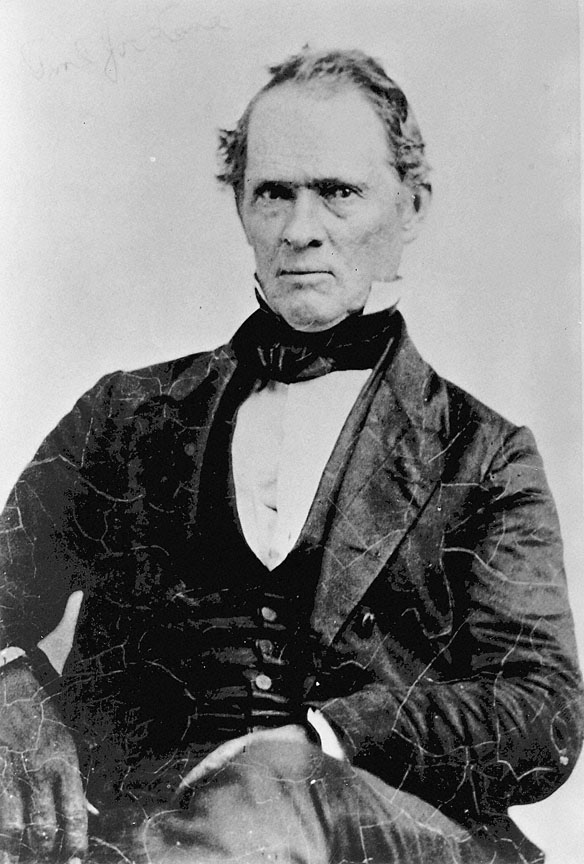Get Today in Masonic History into your Inbox. Sign up today for one of our email lists!
Need an article for your Trestleboard/Newsletter see our Use Policy
Joseph "Joe" Lane Passes Away

Today in Masonic History Joseph "Joe" Lane passes away in 1881.
Joseph "Joe" Lane was an American politician.
Lane was born on December 14th, 1801 in Buncombe County, North Carolina. At a young age his family moved to Kentucky. From there he left home at the age of 15 and was married at the age of 19. He was largely self-educated reading what books he could at night. During the day he worked and saved money, eventually buying a flatboat he used to move cargo on the Ohio River after moving to Evansville, Indiana.
Lane was eloquent speaker and at the age of 21 used those talents to get elected to the Indiana House of Representatives. He served in the house three separate times, the first from 1822 to 1823, the second from 1830 to 1833 and the third from 1838 to 1839. Leaving the House of Representatives in 1839 he moved to the Indiana State Senate where he served twice, the first from 1839 to 1840 and the second from 1844 to 1846. During the same period Lane also joined the local militia and was elected captain.
In 1846, when the Mexican-American war broke out, Lane was deployed with his militia to Mexico. He was promptly elected as colonel of the militia. Shortly after he was made brigadier general of volunteers. In 1847 he was shot twice suffering minor gunshot wounds. He was then promoted to major general. In late 1847, Lane led the relief force which lifted the siege of Puebla where he defeated Antonio López de Santa Anna at the Battle of Huamantla.
In 1848, after returning from the war, Lane was appointed by President James K. Polk as the governor of the Oregon territory. He traveled during the winter of 1848 and 1849 along the Oregon trail, arriving in early March of 1849. His first official act was to conduct a census of the people living in Oregon. He resigned as governor in 1850. In 1851 he was elected as the Delegate to in Congress for the Oregon Territory, he won two additional terms. In 1859, when Oregon became a state, Lane was elected as one of the first United States Senators from Oregon.
In 1853, while the Delegate to Congress, Lane led local militia to suppress the violence of local tribes who were attacking settlers and miners. He also led troops in the Rogue River Wars, a fight between Rogue River tribes in the Rogue River valley and United States forces.
Lane was still very much a southerner, even as he served as the Senator from Oregon. Lane had a pro-slavery stance which was not popular in Oregon. When talk started about secession, and Lane came out in favor of it, he became even less popular in his home state. Lane had a confrontation in the Senate with Andrew Johnson, the Senator from Tennessee. Johnson spoke strongly and eloquently against secession. After his speech Lane said he had abandoned his birthright by arguing in favor of staying with the Union. Johnson countered by saying Lane was a hypocrite since he was the one who was abandoning his birthright by arguing for secession.
After he left the Senate in 1861, Lane was nominated by the "southern" Democrats for Vice President, after the southern Democrats stormed out of the convention and decided to have their own Presidential and Vice Presidential candidates. When he and his running mate lost, Lane retired from politics. Although he maintained his belief in secession, he did not fight for the Confederacy. Lane was accused of holding a slave until 1878, this was untrue as people were confused by the fact Lane had adopted an African-Native American orphan at the age of two.
Lane passed away on April 19th, 1881.
Lane was a member of Center Lodge No. 23 in Indianapolis, Indiana.
This article provided by Brother Eric C. Steele.

